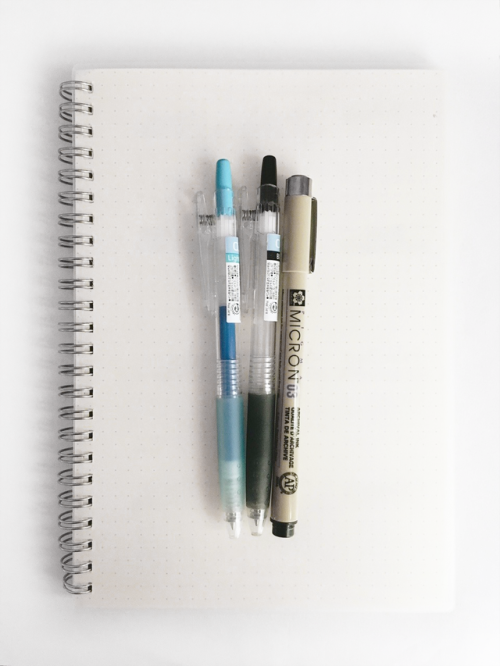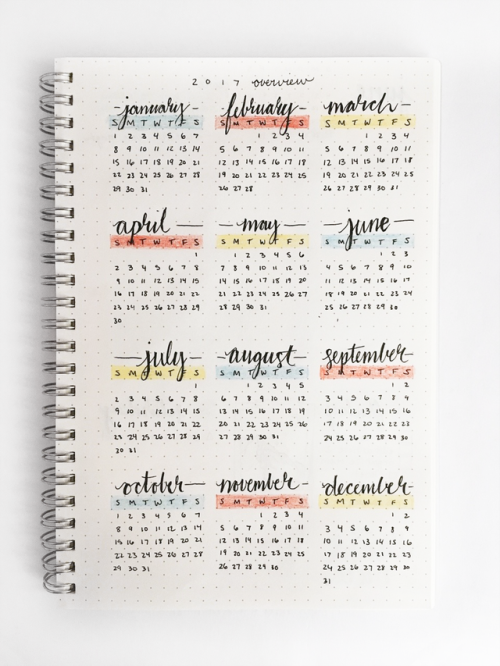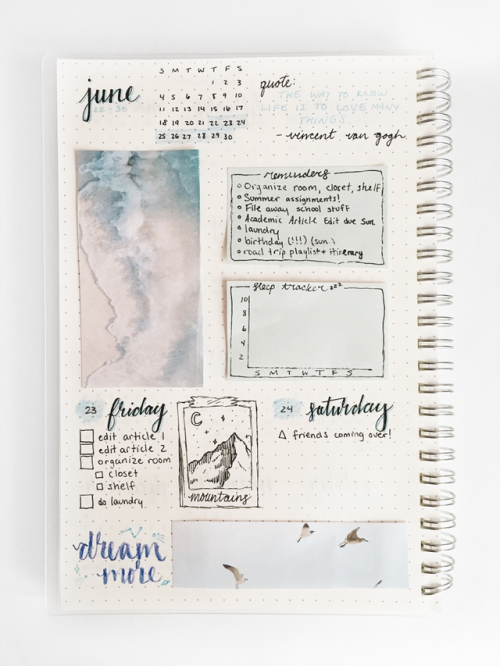Here’s A Look At My Hobonichi Planner ✧・゚

here’s a look at my hobonichi planner ✧・゚
i write out my daily tasks + upcoming events, and it’s been really helpful for staying on track!
More Posts from Tobefoundlater and Others





For more posts like these, go to @mypsychology
small talk in french 💬
⭐️ (for beginners) ⭐️
When talking to french people, focus on innocuous topics like the weather, current events (“avez-vous lu à propos de..?” Have you read about…?), and cultural topics like food, movies, art, music, and so on. And remember to use vous instead of tu!
I only speak a little French. Je ne parle qu'un peu le français.
I am learning French, but I am only a beginner. J'apprends le français mais je ne suis qu'un débutant.
I have been learning french for 2 days / 2 weeks / 2 months / 1 year / 2 years. J'apprends le français depuis deux jours / deux semaines / deux mois / un an / deux ans.
Will you please correct me? Peux-tu me corriger, s'il te plaît?
What does ___ mean? Que veut dire ___?
What does that mean? Qu'est-ce que ça veut dire?
Can you explain in French/English to me? Peux-tu m'expliquer en français / anglais?
What does that mean in this context? Qu'est-ce que ça veut dire dans ce contexte?
What is the French word for ___? Quel est le mot français pour ___?
Is this/that correct? C'est juste?
Am I wrong? Je me trompe?/Est-ce que j'ai tort?
Am I correct? Est-ce que j'ai raison?
Do you understand? Est-ce que tu me comprends?
I do not understand. Je ne comprends pas.
I want to improve my level in French. Je veux améliorer mon niveau de français.
I need to practice French. J'ai besoin de pratiquer le français.
Do you have time to speak with me? As-tu le temps de parler avec moi ?
Can you help me to learn French? Peux-tu m'aider à apprendre le français?
Do you mind if we speak in French? Ça te dérange si nous parlons en français?
Can you please speak in French? it helps me to learn. Peux-tu me parler en français s'il te plaît? Ça m'aide à apprendre.
How do you say ’___’ in French? Comment dit-on ’___’ en français ?
I struggle with spelling / reading / writing / listening / pronunciation. J'ai du mal avec l'orthographe / la lecture / l'écriture / la compréhension orale / la prononciation.
Can you please repeat? I did not understand. Pouvez-vous répéter s'il vous plaît ? Je n'ai pas compris.
I don’t speak French fluently. Je ne parle pas couramment le français.
I am confused. Je suis perdu(e).
I don’t know how to say it in French. Je ne sais pas comment le dire en Français,
Sorry (or ‘pardon’), what did you say? Pardon, qu'est-ce que tu as dit?
I’ve never heard of that. Je n'ai jamais entendu ça.
That makes sense. Ça se tient.
That does not make sense. Ça n'a aucun sens.
What’s happening? / What’s going on? Qu'est-ce qui se passe?
What do you mean by ’___’ ? Qu'est-ce que tu entends par ’___’? / Qu'est-ce que tu veux dire par ’___’?
⭐️ Personal Stuff ⭐️
Here is a list of phrases you can use and practice when giving and asking for personal information. Take note that the list makes use of the formal “vous”.
Comment vous appelez-vous? What is your name?
Je m'appelle Christine. My name is Christine.
Quel est votre nom? What is your name?
Comment allez-vous? How are you?
Je vais bien, merci. I am doing well, thank you.
Très bien, merci. Very well, thank you.
Quel âge avez-vous? How old are you?
J'ai # ans. I am # years old.
J'ai trente ans. I am thirty years old.
J'ai quarante-deux ans. I am forty two old.
Quelle est votre nationalité? What is your Nationality?
Je suis canadien(ne). I am Canadian.
Je suis américain(e). I am American.
Je suis chinois(e). I am Chinese.
Je suis coréen(ne). I am Korean.
Où habitez-vous? Where do you live?
J'habite en Californie. I live in California.
Quel est votre numéro de téléphone? What is your phone number?
Mon numéro de téléphone est le … My phone number is …
Où êtes-vous né(e)? Where were you born?
Je suis né(e) à… I was born in…
Êtes-vous marié(e)? Are you married?
Oui, je suis marié. Yes, I am married
Non, je ne suis pas marié. No, I am not married
Je suis célibataire. I am single
Est-ce que vous avez des frères et soeurs? Do you have any brothers and sisters?
Je suis fille unique. I am an only child/daughter
Je suis fils unique. I am an only child/son
J'ai - frère(s). I have - brother(s).
J'ai - soeur(s). I have - sisters(s).
Je n'ai pas de frères. I don’t have any brothers.
Je n'ai pas de soeurs. I don’t have any sisters.
Quel est votre métier? What is your job?
Quelle est votre profession? What is your profession?
Que faites-vous dans la vie? What do you do for a living?
Je suis ingénieur. I am an engineer.
Je suis boulanger/boulangère. I am a baker.
Je suis médecin. I am a doctor.
Je suis infirmier/infirmière. I am a nurse.
⭐️ Interests ⭐️
Quel est votre sport préféré? What is your favorite sport? (formal)
Quel est ton sport préféré?
What is your favorite sport? (informal)
Mon sport préféré est… My favorite sport is….
J'aime faire du sport et garder la forme. I like to do sports to keep fit.
Quelle saison préférez-vous? What season do you prefer? (formal
Quelle saison préfères-tu? What season do you prefer? (What season is your favorite?) (informal)
Quels sont vos passe-temps préférés? What are your favorite pastimes? (formal)
Quels sont tes passe-temps préférés? What are your favorite pastimes? (informal)
Mes passe-temps préférés sont… My favorite pastimes are…
Qu'est-ce que vous faites dans votre temps libre? What do you do in your free time? (formal)
Qu'est-ce que tu fais dans ton temps libre? What do you do in your free time? (informal)
Est-ce que vous avez un animal de compagnie? Do you have a pet?(formal)
Est-ce que tu as un animal de compagnie? Do you have a pet? (informal)
Non, Je n'ai pas un animal de compagnie. No, I don’t have a pet.
Oui, J'ai un chat. Yes, I have a cat.
Oui, J'ai un chien.Yes, I have a dog.
Qu'est-ce que vous aimez? What do you like?
J'aime le jazz. I like jazz.
J'aime le rock. I like rock.
J'aime le hip-hop. I like hip-hop.
Je n'aime pas le rap. I don’t like rap.
Je n'écoute pas de la musique très souvent. I don’t listen to music very often.
J'aime les films d'amour. I like romance films.
J'aime les films d'aventures. I like adventure films.
Je n’aime pas faire du ski. I don’t like skiing.
Qu'est-ce que vous aimeriez faire dans la vie? What would you like to do in life ?
J'aimerais être chef. I would like to be a chef.
J'aimerais être un bibliothécaire. I would like to be a librarian.
It really baffles me how there are hundreds of billions of galaxies in the universe. Hundreds of billions of stars per galaxy. With each star system containing 1-9 planets each. And people still are convinced that this tiny speck of dust we call Earth is the only place you can find intelligent life, let alone life period.

49/100 - taken from studygram! | visit my store
↳ apush is killing me



06.23.17 // beginning my summer by setting up a bullet journal! it’s not perfect, but i’m happy that i’m starting it again. the weekly spread at the end isn’t finished, but its a preview of sorts. can you tell i like blue?

Stationery addict 🤷🏻♀️ all stocked up and ready to start specialising in graphics next week ✏️
French vocabulary: Space

l’espace - space l’univers - universe la planète - planet le sytème solaire - solar system Mercure - Mercury Vénus - Venus la Terre - Earth Mars - Mars Jupiter - Jupiter Saturne - Saturn Uranus - Uranus Neptune - Neptun Pluton - Pluto la lune - moon la pleine lune - full moon la nouvelle lune - new moon le croissant de lune - crescent l’orbite - orbit la pesanteur - gravity le météore - meteor la galaxie - galaxy la nébuleuse - nebula l’astéroïde - asteroid la comète - comet le trou noir - black hole l’éclipse solaire - solar eclipse le soleil - sun
It’s Friday...Come Space Out with Us
It’s Friday…which seems like a great excuse to take a look at some awesome images from space.
First, let’s start with our home planet: Earth.

This view of the entire sunlit side of Earth was taken from one million miles away…yes, one MILLION! Our EPIC camera on the Deep Space Climate Observatory captured this image in July 2015 and the picture was generated by combining three separate images to create a photographic-quality image.
Next, let’s venture out 4,000 light-years from Earth.

This image, taken by the Hubble Space Telescope, is not only stunning…but shows the colorful “last hurrah” of a star like our sun. This star is ending its life by casting off its outer layers of gas, which formed a cocoon around the star’s remaining core. Our sun will eventually burn out and shroud itself with stellar debris…but not for another 5 billion years.
The material expelled by the star glows with different colors depending on its composition, its density and how close it is to the hot central star. Blue samples helium; blue-green oxygen, and red nitrogen and hydrogen.
Want to see some rocks on Mars?

Here’s an image of the layered geologic past of Mars revealed in stunning detail. This color image was returned by our Curiosity Mars rover, which is currently “roving” around the Red Planet, exploring the “Murray Buttes” region.
In this region, Curiosity is investigating how and when the habitable ancient conditions known from the mission’s earlier findings evolved into conditions drier and less favorable for life.
Did you know there are people currently living and working in space?

Right now, three people from three different countries are living and working 250 miles above Earth on the International Space Station. While there, they are performing important experiments that will help us back here on Earth, and with future exploration to deep space.
This image, taken by NASA astronaut Kate Rubins shows the stunning moonrise over Earth from the perspective of the space station.
Lastly, let’s venture over to someplace REALLY hot…our sun.

The sun is the center of our solar system, and makes up 99.8% of the mass of the entire solar system…so it’s pretty huge. Since the sun is a star, it does not have a solid surface, but is a ball of gas held together by its own gravity. The temperature at the sun’s core is about 27 million degrees Fahrenheit (15 million degrees Celsius)…so HOT!
This awesome visualization appears to show the sun spinning, as if stuck on a pinwheel. It is actually the spacecraft, SDO, that did the spinning though. Engineers instructed our Solar Dynamics Observatory (SDO) to roll 360 degrees on one axis, during this seven-hour maneuver, the spacecraft took an image every 12 seconds.
This maneuver happens twice a year to help SDO’s imager instrument to take precise measurements of the solar limb (the outer edge of the sun as seen by SDO).
Thanks for spacing out with us…you may now resume your Friday.
Make sure to follow us on Tumblr for your regular dose of space: http://nasa.tumblr.com




“I don’t know anything with certainty, but seeing the stars makes me dream.” - Van Gogh 🌌 studygram 🌙

Hey guys! This have been REALLY hectic, as I’ve been submitting forms for college and I’ve also been swamped with studying for finals and AP tests D: It’s definitely a bit stressful but I’m looking forward to when all of this is over! :)
-
 solielis reblogged this · 10 months ago
solielis reblogged this · 10 months ago -
 bookishradha liked this · 4 years ago
bookishradha liked this · 4 years ago -
 miss-meeko liked this · 4 years ago
miss-meeko liked this · 4 years ago -
 a-quietly-crying-ostrich liked this · 5 years ago
a-quietly-crying-ostrich liked this · 5 years ago -
 jeongyeonistheloml reblogged this · 5 years ago
jeongyeonistheloml reblogged this · 5 years ago -
 jeongyeonistheloml liked this · 5 years ago
jeongyeonistheloml liked this · 5 years ago -
 dianitadiaz liked this · 5 years ago
dianitadiaz liked this · 5 years ago -
 scorpio--studies reblogged this · 5 years ago
scorpio--studies reblogged this · 5 years ago -
 mahaloapollo liked this · 5 years ago
mahaloapollo liked this · 5 years ago -
 shi-ro liked this · 5 years ago
shi-ro liked this · 5 years ago -
 eyes-without-a-face-x liked this · 5 years ago
eyes-without-a-face-x liked this · 5 years ago -
 chloeisntstudying liked this · 6 years ago
chloeisntstudying liked this · 6 years ago -
 marvelandpanictrash liked this · 6 years ago
marvelandpanictrash liked this · 6 years ago -
 smile-be-a-panda liked this · 6 years ago
smile-be-a-panda liked this · 6 years ago -
 soulwithnowonder liked this · 6 years ago
soulwithnowonder liked this · 6 years ago -
 pinkpurplehaze liked this · 6 years ago
pinkpurplehaze liked this · 6 years ago -
 quiet-fawn-of-the-galaxy liked this · 6 years ago
quiet-fawn-of-the-galaxy liked this · 6 years ago -
 scorpio--studies reblogged this · 6 years ago
scorpio--studies reblogged this · 6 years ago -
 winnielayeaa-blog liked this · 6 years ago
winnielayeaa-blog liked this · 6 years ago -
 vals-studies-blog reblogged this · 6 years ago
vals-studies-blog reblogged this · 6 years ago -
 essiieee liked this · 6 years ago
essiieee liked this · 6 years ago -
 listenas-she-whispers reblogged this · 6 years ago
listenas-she-whispers reblogged this · 6 years ago -
 overduelove liked this · 6 years ago
overduelove liked this · 6 years ago -
 enchanteddaydreams liked this · 6 years ago
enchanteddaydreams liked this · 6 years ago -
 productivebuddy reblogged this · 6 years ago
productivebuddy reblogged this · 6 years ago -
 elysslittleworld liked this · 6 years ago
elysslittleworld liked this · 6 years ago -
 bembi-na-blog reblogged this · 6 years ago
bembi-na-blog reblogged this · 6 years ago -
 bembi-na-blog liked this · 6 years ago
bembi-na-blog liked this · 6 years ago -
 augustmoonlit liked this · 6 years ago
augustmoonlit liked this · 6 years ago -
 roe-koe reblogged this · 6 years ago
roe-koe reblogged this · 6 years ago -
 la-malqueridaa liked this · 6 years ago
la-malqueridaa liked this · 6 years ago -
 ingenuevibes reblogged this · 6 years ago
ingenuevibes reblogged this · 6 years ago -
 definestudying reblogged this · 6 years ago
definestudying reblogged this · 6 years ago -
 blckvstudy reblogged this · 6 years ago
blckvstudy reblogged this · 6 years ago -
 readingwithmorgs reblogged this · 6 years ago
readingwithmorgs reblogged this · 6 years ago -
 studyingjade reblogged this · 6 years ago
studyingjade reblogged this · 6 years ago -
 gumioimpxriax reblogged this · 6 years ago
gumioimpxriax reblogged this · 6 years ago